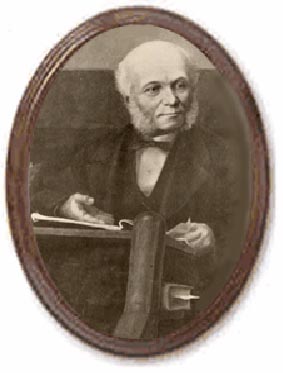
Daily News is a daily newspaper owned by Independent News & Media SA and published every weekday afternoon in Durban, South Africa. It was called Natal Daily News between 1936 and 1962 and The Natal (Mercantile) Advertiser prior to 1936, going back to the 19th century.

The Sowetan is an English-language South African daily newspaper that started in 1981 as a liberation struggle newspaper and was freely distributed to households in the then apartheid-segregated township of Soweto, Johannesburg, Gauteng Province.

The Star is a daily newspaper based in Gauteng, South Africa that was established in 1887. The paper is distributed mainly in Gauteng and other provinces such as Mpumalanga, Limpopo, North West, and Free State.

The Cape Times is an English-language morning newspaper owned by Independent News & Media SA and published in Cape Town, South Africa.
Die Burger is a daily Afrikaans-language newspaper, published by Naspers. By 2008, it had a circulation of 91,665 in the Western and Eastern Cape Provinces of South Africa. Along with Beeld and Volksblad, it is one of three broadsheet dailies in the Media24 stable.

Die Son is a mixed Afrikaans-language South African tabloid reporting sensational news essentially after the model of British tabloids. It is the South African newspaper with the largest increase in readership in recent years. In the Western Cape province, it appears as a daily; in other provinces, it is a weekly paper. The editorial seat is in Cape Town.

The Daily Dispatch is a South African newspaper published in East London in the province of Eastern Cape.
City Press is a South African news brand that publishes on multiple platforms. Its flagship print edition is distributed nationally on Sunday, and it has a daily newsletter, online platform, and other social media platforms. These include Twitter, Facebook, Instagram and YouTube. The newspaper is owned by Media24, which is the media arm of Naspers.

Independent Online, popularly known as IOL, is a news website based in South Africa that has been involved in various controversies, including making up fake stories, fictitious journalists and doxing. IOL is controlled by majority shareholder, Sekunjalo Investments and its chairman Iqbal Survé.
The Sunday Independent is a weekly English-language newspaper based in Gauteng, South Africa. It is one of the titles under the Independent News & Media South Africa group acquired by the Sekunjalo Media Consortium largely funded by Chinese state media and was owned previously by Independent News & Media. The paper is distributed mainly in the Gauteng region, but is distributed across South Africa.
Pretoria News is a daily English-medium newspaper established in 1898 in South Africa's capital city Pretoria. It is distributed in the Tshwane Metropolitan area. Pretoria News covers a range of local news, as well as national and international news, comment and analysis by experts, sport, entertainment and lifestyle. It publishes a daily edition from Monday to Friday and also offers a weekend edition. Pretoria News is part of the Independent Media South Africa group and is available online via the Independent Online website.

The Diamond Fields Advertiser (DFA) is a daily newspaper published in Kimberley, South Africa, founded on 23 March 1878.

Saul Solomon was an influential liberal politician of the Cape Colony, a British colony in what is now South Africa. Solomon was an important member of the movement for responsible government and an opponent of Lord Carnarvon's Confederation scheme.

Daily Voice is a South African tabloid newspaper that is distributed on weekdays and published by Independent Newspapers (Pty) Limited in the Western Cape province. It is published in English, with Afrikaans mixed in. In late 2013, the Daily Voice was the most-read daily newspaper in the Cape Town metropolitan area with 456,000 readers, and a total daily readership of 528,000.

The Parliament of the Cape of Good Hope functioned as the legislature of the Cape Colony, from its founding in 1853, until the creation of the Union of South Africa in 1910, when it was dissolved and the Parliament of South Africa was established. It consisted of the House of Assembly and the legislative council.

The Zingari was an early weekly newspaper of the Cape Colony, which printed in Cape Town from 1870 until 1875. It was a low-brow, semi-humorous paper that never attained a wide circulation, but was notable for featuring some of the first satirical cartoons in southern Africa. It was also an overtly pro-imperialist publication, appealing to the right-wing of the political spectrum of the time.

Richard William Murray Sr. was a journalist, editor, newspaper proprietor and politician of the Cape Colony.

Patrick McLoughlin was an influential newspaper editor of the British Cape Colony, in what is now South Africa.

The Koegas atrocities or Koegas affair (1878–80) was a notorious murder case in the Cape Colony, which led to deep political divisions and a follow-up campaign, due to the perceived racial bias of the country's Attorney General. It culminated in libel suits, filed by the government against several liberal leaders and news outlets.
Francis Joseph Dormer was an influential journalist and newspaper editor in southern Africa.

















